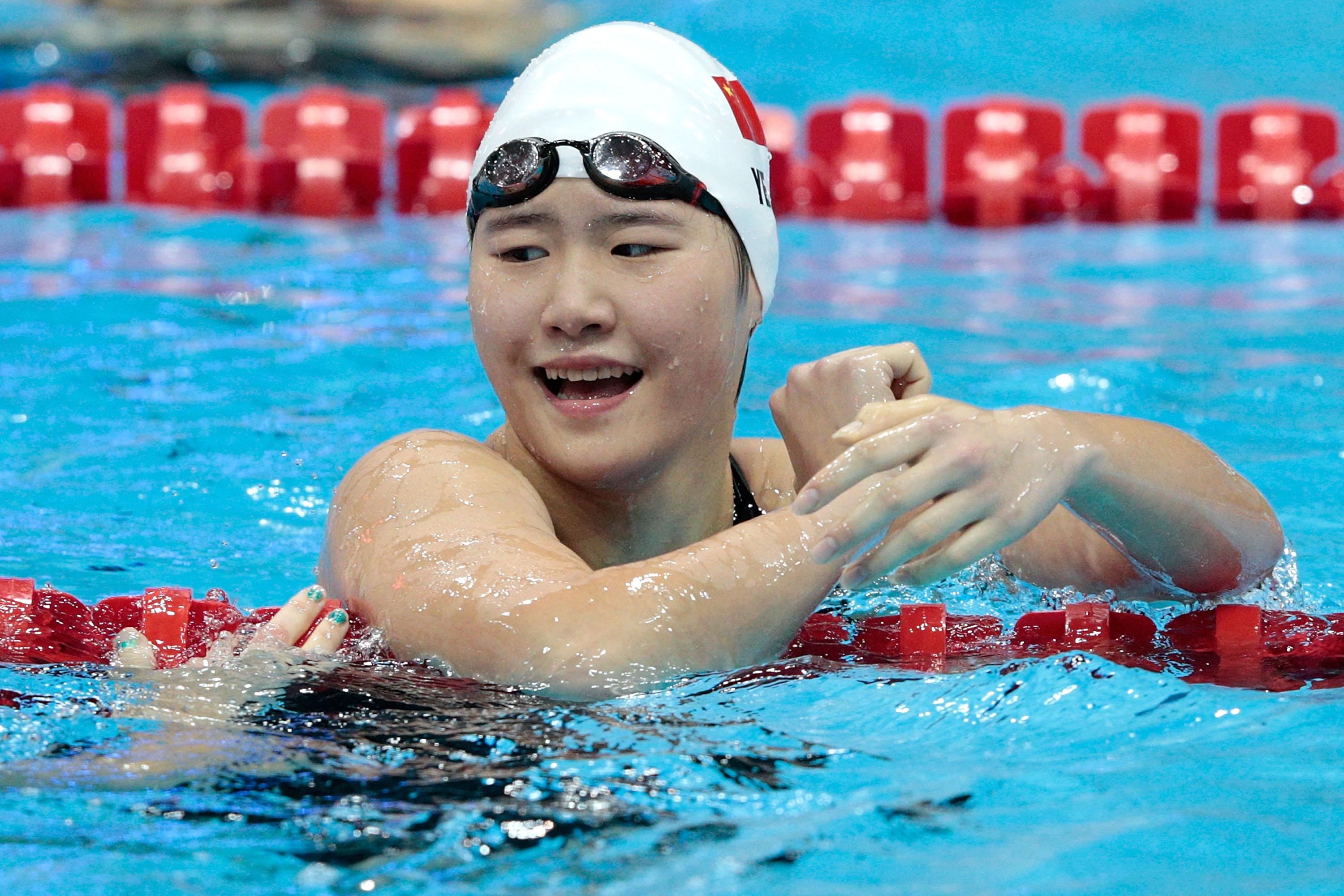In the absence of hard evidence—reliable sources, a failed drug test—sportswriters don’t go around accusing athletes of cheating. Except, it seems, when that athlete is a 16-year-old Chinese swimmer who’s going faster than anyone has gone before.
On Tuesday, National Post sports columnist Bruce Arthur said Ye Shiwen’s achievements were “looming over this swim meet, and over these Olympics, like a shadow from the past.” That shadow was conjured by John Leonard, executive director of the USA Swimming Coaches Association. In a story published on Monday, Leonard told Britain’s Guardian that Ye’s world-record-breaking performance in Saturday’s 400-meter individual medley was “disturbing” and “suspicious.” The Chinese swimmer’s second Olympic victory, in Tuesday’s 200-meter IM, won’t do anything to stop that sort of talk.
What set off Ye’s critics was her amazing finish on Saturday. In the final 50 meters of the IM’s freestyle leg, she swam faster than Ryan Lochte did in that portion of his gold-medal-winning 400-meter IM. In the New York Times, Jere Longman wrote that “no swimmers accused Ye … of using illicit substances to fuel her kick.” But Longman also quoted American star Natalie Coughlin calling the performance “interesting,” Australia’s Stephanie Rice terming it “insane,” and the United States’ Caitlin Leverenz saying, “The Chinese have had a history in the past of doping, so I don’t think people are crazy to point fingers, but I don’t think that’s my job to do right now.”
The quotes from these coaches and athletes—and the articles and television broadcasts that dutifully collect them—all play the game of pretending to be fair and even-handed. Ye’s feat is interesting, not illegitimate. It’s not crazy if other people want to point fingers, but that’s not what I’m doing.
“Some high-ranked swimming officials, experts, have questioned [her performance], pointing to a history of positive drug tests by Chinese swimmers,” Dan Hicks said before NBC’s broadcast of Tuesday’s 200 IM. “That is all pure speculation at this point.” Hicks and Rowdy Gaines continued to engage in that pure speculation after the race began. “I don’t think in this day and age it should be a big surprise, Dan, that people will be suspicious,” Gaines said as the field passed the 50-meter mark—we’re not suspicious, but you know how people are.
“We want to be very careful about calling it doping,” Leonard told the Guardian, speaking for all the swimmers and writers and talking heads who’ve weaseled their way around calling Ye a straight-up cheater. “The one thing I will say is that history in our sport will tell you that every time we see something, and I will put quotation marks around this, ‘unbelievable,’ history shows us that it turns out later on there was doping involved,” Leonard continued. “That last 100 meters was reminiscent of some old East German swimmers.”
I suspect there are three reasons that journalists and TV commentators have decided it’s OK to accuse Ye of doping. The first is the “gotcha” element of her better-than-Lochte split time—how is it possible that a clean female swimmer could go faster than the best man in the world? But this selective editing of Ye’s 400 IM leaves out the fact that she was in fifth place after the race’s first leg, the butterfly. (She swam that leg seven seconds slower than Lochte did, for what it’s worth.) She also didn’t hold the lead in the 400 IM at any split until the 350-meter mark. One of the reasons Ye was so strong at the end, it seems, was that she was weak in the beginning. (That pacing, the Science of Sport’s Ross Tucker says, could mean that Ye has the ability to go much faster.)
Ye has also drawn suspicion because she doesn’t look like she should be swimming so fast. She “is known for her large hands and feet,” the AP reports, “but otherwise she’s smaller than other swimmers at 5 feet 7 inches and 141 pounds.” But the biggest reason these doping accusations are so prevalent is that Ye is from China, a country with a history of doping in swimming; a highly regimented, state-run sports system; and a recent, paranoia-inducing dominance of the medal table. Toronto’s Globe and Mail pointed out that “Chinese athletes—and their respected Australian coaches—are insisting that this isn’t the same China that was a disgrace in the 1990s, when ripped, drug-fuelled swimmers emerged from nowhere to beat the world.” The obvious subtext here: Why should we believe them?
To that, I would say: Why shouldn’t we? In 1987, a 15-year-old who weighed 95 pounds broke the 800-meter freestyle world record by more than two seconds. Janet Evans’ triumph was rightly celebrated as the amazing achievement of a once-in-a-generation athlete.
We should open our minds to the possibility that a young woman from China could be a similar talent. We don’t know if training, the amazing improvements that teenagers (like the young Michael Phelps) sometimes make seemingly overnight, or something else altogether is responsible for Ye’s amazing success. But as Lord Moynihan, the chairman of the British Olympic Committee, pointed out in her defense, Ye has been drug tested repeatedly and has passed every single time.
Until there’s a smoking starter’s gun, I agree with Daily Telegraph columnist David Hughes that this is “a disagreeable smear campaign.” At 16 years old, Ye Shiwen has been branded a likely drug cheat. No matter what she does for the rest of her career, it’s a charge that will likely stay with her forever.
Read the rest of Slate’s coverage of the London Olympics.
